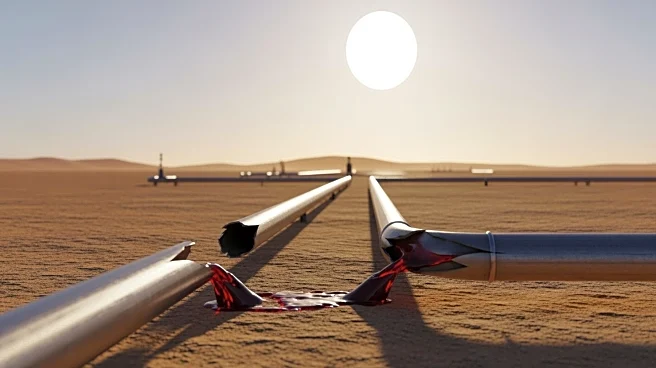What's Happening?
A report by Deloitte highlights significant revenue losses in Africa's oil and gas sector due to infrastructure gaps. The lack of pipelines, refineries, storage facilities, and transport networks hinders
the monetization of Africa's oil and gas resources. Countries like Nigeria and Angola face logistical challenges that increase costs and delay production. The report identifies five main challenges: funding access, cost premiums, security threats, regulatory collaboration, and infrastructure insufficiencies. These issues are exacerbated by global political and economic shifts and the push for cleaner energy.
Why It's Important?
The infrastructure challenges in Africa's oil and gas sector have broader implications for the continent's economic development and energy security. The inability to effectively monetize resources limits growth potential and investment opportunities. The report emphasizes the need for coordinated investment in infrastructure to capitalize on rising global demand for oil and gas. Addressing these challenges is crucial for Africa to compete in the global energy market and attract foreign investment. The focus on infrastructure development aligns with global trends towards sustainable energy solutions.
What's Next?
To unlock Africa's full oil and gas potential, governments must prioritize infrastructure development alongside exploration and production. This requires regulatory reforms, fiscal transparency, and investment incentives aligned with global standards. Building regional partnerships to share infrastructure and mitigate security threats is essential. The report calls for a coordinated effort to address infrastructure gaps and ensure Africa can benefit from its hydrocarbon resources. The success of these initiatives will depend on collaboration between governments, investors, and industry stakeholders.
Beyond the Headlines
The report highlights the importance of infrastructure as the backbone of the energy value chain. The challenges faced by Africa's oil and gas sector reflect broader issues of governance, investment, and regional cooperation. The focus on infrastructure development presents opportunities for innovation and sustainable growth. Addressing these challenges requires a long-term commitment to building resilient and efficient energy systems that can support economic development and environmental sustainability.










